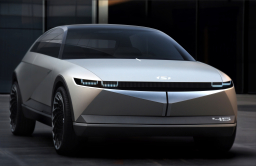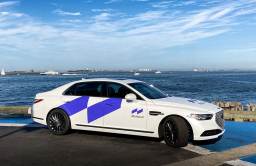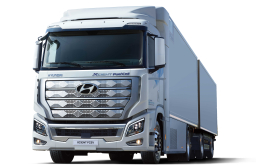-
KOSPI 2577.27 -2.21 -0.09%
-
KOSDAQ 722.52 -7.07 -0.97%
-
KOSPI200 341.49 +0.02 +0.01%
-
USD/KRW 1396 -2.00 0.14%
Hyundai inks deal to build first overseas hydrogen fuel cell plant in China
Fuel cell plants
Hyundai inks deal to build first overseas hydrogen fuel cell plant in China
By
Jan 15, 2021 (Gmt+09:00)
2
Min read
News+
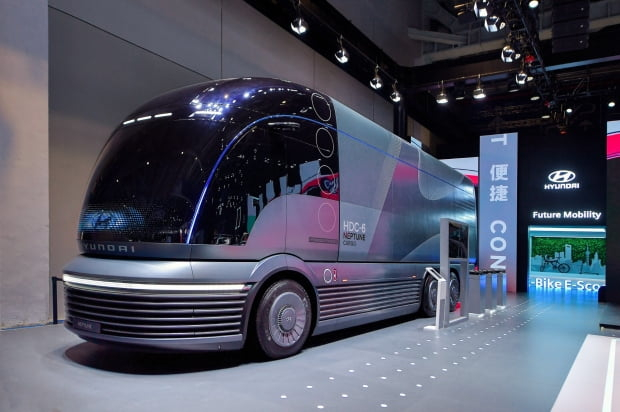
Hyundai Motor Co. has signed a contract to build its first overseas hydrogen fuel cell systems plant in China as the South Korean company aims to enter the world’s largest auto market by building its hydrogen vehicles there.
The top Korean automaker said on Jan. 15 that the construction of the plant in China's southern city of Guangzhou will begin in February with a view to completion in the second half of 2022.
Hyundai will own 100% of the plant.
Once completed, the plant will produce 6,500 fuel cell systems for hydrogen-powered vehicles annually and gradually increase output volumes depending on market demand, Hyundai said in a statement.
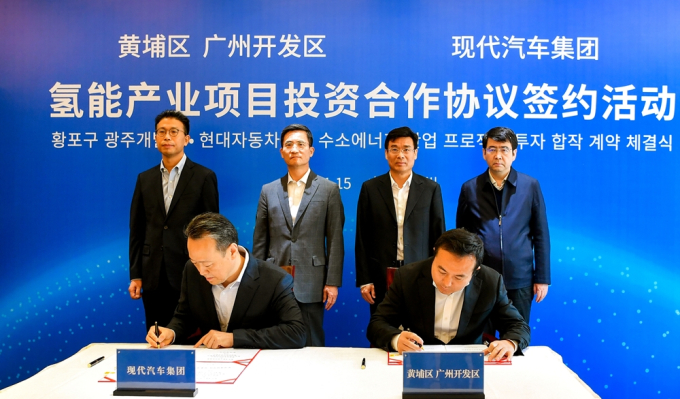
The statement confirms a report by The Korea Economic Daily last week that Hyundai obtained approval from Korea’s trade ministry to build a fuel cell plant, as cross-border transfer of such technology requires government approval due to concerns over possible leaks of advanced technology.
The company said on Friday that fuel cell systems produced at the plant will mainly be used for the Hyundai NEXO, the world’s first hydrogen-powered SUV, with the longest driving range of hydrogen vehicles in the market.
GROWING COMPETITION IN CHINA’S FUEL CELL MARKET
In China, Hyundai Motor will be competing with global peers such as Japan’s Toyota Motor Corp. as well as Chinese automakers.
Toyota is already in the Chinese hydrogen-powered auto market – it established hydrogen-charging facilities in Jiangsu in 2017 and launched a joint R&D firm with five Chinese companies in Beijing last year.
Other global companies entering the Chinese fuel cell systems market include Canada’s Ballard Power Systems Inc., Germany’s Bosch GmbH and SFC Energy AG, and the UK’s Ceres Power Co.
In November 2020, Hyundai Motor said it signed two initial agreements with several Chinese companies toward establishing business platforms for hydrogen trucks in China.
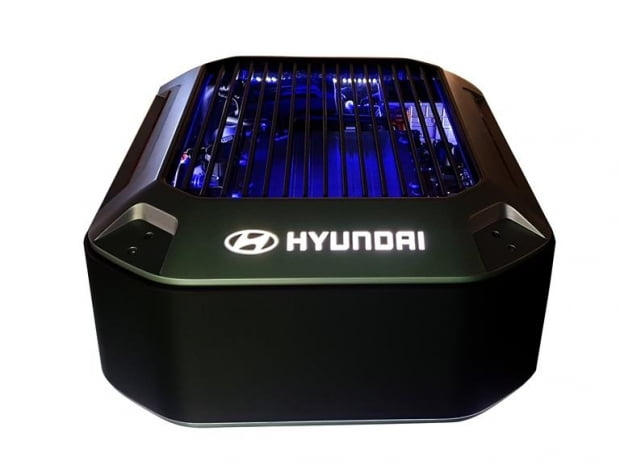
In 2018, Hyundai unveiled its mid- to long-term fuel cell roadmap, under which the automaker aims to increase annual production of hydrogen fuel cell systems to 700,000 units by 2030.
As part of such efforts, the automaker said in December 2020 that it is launching a new brand, HTWO, dedicated to its hydrogen fuel cell systems.
Hyundai Motor Chairman Chung Euisun, who took the helm of the automotive group in October of last year, has said the company will push for new growth businesses focusing on EVs, hydrogen fuel cell cars and future mobility platforms.
Write to Il-Gue Kim at Black0419@hankyung.com
In-Soo Nam edited this article.
More To Read
-
Jan 08, 2021 (Gmt+09:00)
-
Dec 17, 2020 (Gmt+09:00)
-
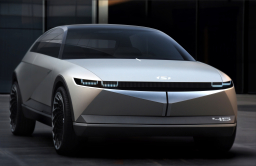 Automated valet parkingHyundai Motor to roll out automated remote valet parking cars in 2024
Automated valet parkingHyundai Motor to roll out automated remote valet parking cars in 2024Dec 11, 2020 (Gmt+09:00)
-
Nov 04, 2020 (Gmt+09:00)


